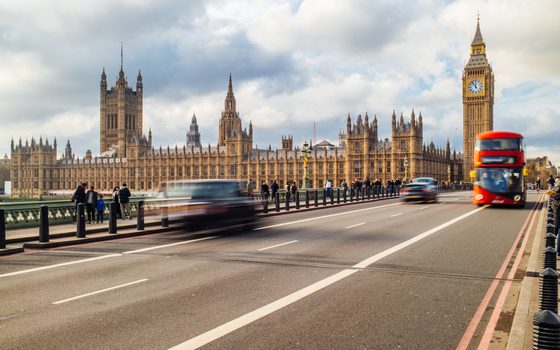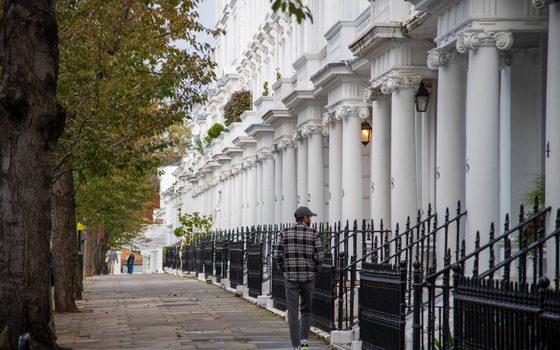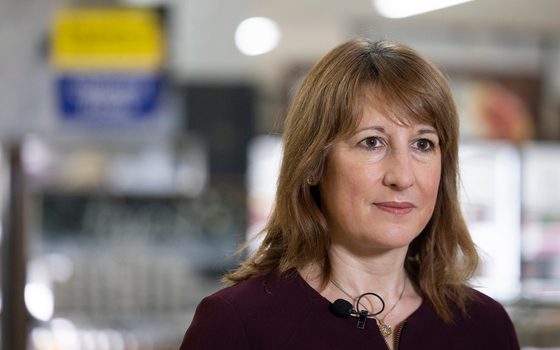You can’t tax what you refuse to see
A modern and fairer tax system must be directed at extreme wealth, not further squeeze workers’ salaries
18 July 2025
We don’t tax the wealth of the very richest – not because we can’t, but because we’ve chosen not to build the systems to do it. The UK is losing billions of pounds in potential tax revenue because HMRC, the UK government’s tax authority, doesn’t have a clear picture of who the super-rich are or how much wealth they really hold. The technical tools exist – what’s missing is the political will to use them.
Data shows that those on the lowest incomes have faced an effective tax rate of 44% on their income and wealth increases, while the richest faced less than half that tax rate, effectively at 21%. That’s because the UK taxes wages and salaries more heavily than it taxes wealth like capital gains, dividends, or property portfolios.
Globally, the pattern is the same. The financial assets of the world, including property, stocks and bonds are overwhelmingly owned by the rich. During the pandemic, the five richest men doubled their wealth in just two years (2020 – 2022), while nearly five billion people became poorer. These fortunes didn’t grow through merit or hard work, but through asset inflation, monopoly power, and political influence, as well as an unfair tax system that means the super-rich do not contribute their fair share to society.
UK wealth inequality is higher than income inequality. The top 1% hold more wealth than the bottom 70% combined. Yet we have no complete record of who owns what. While the incomes of ordinary people are closely monitored, extreme wealth being held by a minority of super-rich individuals goes largely unmeasured and untaxed. We’ve built an economic system that actively conceals wealth, protects it from scrutiny, and shields it from tax. That’s a policy failure, and therefore it can be fixed.
The UK has the tools to tax extreme wealth, what’s missing is political leadership to use them. The upcoming autumn budget is a vital and urgent opportunity. The government could reset the tax system to reflect the values of fairness and shared responsibility, including by finally acting on its promises that “those with the broadest shoulders should bear the heavier burden” and that “those who made the mess should have to do their bit to clean it up”, in reference to polluting companies fuelling climate and ecological breakdown.
There are immediate reforms that would make a difference:
- Equalising capital gains tax (CGT) rates with tax rates on income. Capital gains (or profits made from selling assets like shares or property) are taxed at significantly lower rates than income from work. This benefits the wealthiest asset owners and distorts economic incentives. A study by the Centre for the Analysis of Taxation (CenTax) found that a comprehensive reform of CGT would raise an additional £14bn in total revenues.
- Taxing frequent flyers. With the richest 10% accounting for over 50% of total air travel emissions, a frequent flyer levy (a tax that increases with the number of flights taken per year) could raise up to £5bn annually while reducing emissions and protecting low-income households who rarely fly.
- Reforming business rates to help replace outdated and unfair local property taxes, and reforming council tax to make it proportionate to current values of residential properties. Previous NEF work outlined how these measures can help make these taxes fairer and more responsive to local needs.
- Making windfall taxes on oil and gas giants permanent to reflect ongoing excess profits. The combined total of Shell and BP’s profits over 2024 was £26.2bn, more than double the amount of the UK’s climate finance commitments.
But there is also an urgent need to restore and further build the capacity of the government to know where precious societal wealth is privately hiding. We need urgent investment in what we are calling a taxing wealth programme which would include:
- Modern asset registries, so we know who owns what.
- A high-net-worth-individuals’ unit within HMRC with adequate skills and resources.
- Enforcement powers that can ensure compliance and close loopholes.
The extreme levels of wealth concentration in the hands of a tiny minority of people is not a mere economic imbalance. It is a self-reinforcing cycle of power that destabilises democracy, distorts markets, blocks climate action, and drives the exploitation of people and nature.
A much-needed reset of the UK’s economic policy could be transformational to our society. A taxing wealth programme, alongside reforming fiscal rules and greater fiscal-monetary policy coordination, could provide the resources we need to invest in climate resilience, public services, and community assets like libraries, playgrounds, and leisure facilities, whilst restoring trust in our institutions.
The UK public, including the super-rich themselves, supports greater taxes on wealth; the tools exist, and the need is urgent. The real risk isn’t that a few wealthy individuals might leave the country. It is that essential workers are being driven out of their professions because of burnout, pay erosion, and cost pressures because of successive governments’ political choices about whose livelihoods to protect.
Our tax system is a powerful lever that UK leaders must use to help fix a broken economy that is breeding resentment and fuelling a politics of hate. We can tackle the how by investing in the capacity of our institutions to know and fairly tax where our collective wealth hides. The real question is who will lead?
Image: iStock
Topics Macroeconomics Inequality






